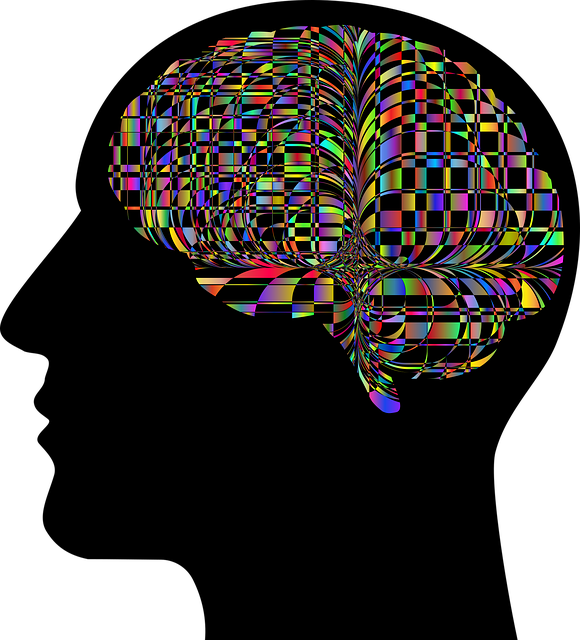In today's digital age, technology is reshaping mental wellness support, as seen through the success of Longmont Child Abuse Therapy. Dedicated mental health apps offer personalized solutions for depression prevention and resilience building. These apps provide targeted interventions, progress tracking, and connections to therapists. A child-focused mental wellness app should prioritize social skills training, emotional regulation exercises, and self-care routine development, mimicking successful practices from Longmont Child Abuse Therapy. Creating a safe, age-appropriate digital space with robust privacy and data security is crucial. Continuous improvement based on user feedback and research ensures the app maintains its effectiveness in promoting long-term mental wellness.
In today’s digital age, technology plays a pivotal role in mental wellness support, especially for children. The development of dedicated apps offers a innovative approach to addressing issues like those encountered in Longmont Child Abuse Therapy. This article explores the significance of creating a specialized mental wellness app tailored for children, focusing on key features, development strategies, and impact assessment. By leveraging technology responsibly, we can enhance therapeutic outcomes and provide accessible support to young minds, as seen in successful initiatives like Longmont Child Abuse Therapy apps.
- Understanding Mental Health Issues in Children: A Focus on Longmont Child Abuse Therapy
- The Role of Technology: Why a Dedicated App is Necessary
- Key Features for an Effective Child-Centric Mental Wellness App
- Development Process: Building an Intuitive and Safe Digital Space
- Impact Assessment and Continuous Improvement for Longmont Child Abuse Therapy App
Understanding Mental Health Issues in Children: A Focus on Longmont Child Abuse Therapy

Understanding Mental Health Issues in Children is a complex and crucial aspect of modern healthcare. Longmont Child Abuse Therapy has emerged as a vital resource for addressing these challenges, focusing on holistic support for young individuals facing various mental health struggles. The role of such therapy programs is multifaceted; they not only provide immediate relief but also equip children with coping mechanisms to navigate their emotional landscapes.
Effective Longmont Child Abuse Therapy involves carefully designed Mental Health Education Programs that teach both awareness and resilience. Risk Management Planning for Mental Health Professionals is a critical component, ensuring a safe and supportive environment. By integrating these strategies, therapists can foster environments that promote Self-Esteem Improvement, enabling children to develop healthy mindsets and lead fulfilling lives.
The Role of Technology: Why a Dedicated App is Necessary

In today’s digital age, technology plays a pivotal role in enhancing various aspects of our lives, including mental wellness. While there are numerous online resources and platforms that offer general advice on mental health, a dedicated app can provide a more personalized and effective approach. Longmont Child Abuse Therapy, for instance, has seen significant success through tech-driven solutions tailored to specific needs.
A mental wellness app offers a unique opportunity to cater to individuals’ or groups’ specific challenges, such as depression prevention and resilience building. These apps can deliver targeted interventions, track progress over time, and facilitate connections with therapists or support networks. By leveraging technology, users can access professional guidance whenever and wherever needed, fostering mental health awareness and promoting proactive care, much like Longmont Child Abuse Therapy has successfully demonstrated in its practices.
Key Features for an Effective Child-Centric Mental Wellness App

When developing a mental wellness app tailored for children, prioritizing their unique needs and vulnerabilities is paramount. Incorporating features that foster Longmont Child Abuse Therapy principles can significantly enhance its effectiveness. One such key feature is Social Skills Training, which can take the form of interactive games or role-playing scenarios designed to help kids improve communication, empathy, and conflict resolution skills. This not only bolsters their mental wellness but also equips them with essential tools for navigating social interactions.
Additionally, enabling children to engage in Emotional Regulation exercises within the app can provide them with healthy coping mechanisms. These could include mindfulness activities, breathing exercises, or journaling prompts that encourage kids to identify and express their emotions constructively. Equally important is integrating functionalities that support Self-Care Routine Development for Better Mental Health. Reminders for consistent sleep schedules, balanced meal times, and dedicated play or relaxation periods can help establish routines that promote overall well-being. By combining these features, an app designed with children in mind can offer a comprehensive toolkit for fostering mental wellness in a child-friendly digital space.
Development Process: Building an Intuitive and Safe Digital Space

In developing a mental wellness app, creating an intuitive and safe digital space is paramount. The process begins with understanding user needs and preferences, ensuring accessibility and usability across various devices and platforms. Longmont Child Abuse Therapy highlights the importance of sensitive design, addressing issues like privacy, data security, and age-appropriate content. Incorporating coping skills development through interactive tools and features fosters a sense of control and empowerment among users.
Beyond basic functionality, app developers should integrate mental wellness coaching programs that support users in managing stress, anxiety, and potential burnout. By leveraging technology to deliver personalized experiences, these apps can enhance traditional therapy methods, making mental health support more accessible and engaging. The goal is to create an environment that encourages open communication while maintaining strict confidentiality, thereby fostering trust and encouraging continuous engagement with coping strategies.
Impact Assessment and Continuous Improvement for Longmont Child Abuse Therapy App

The development of a mental wellness app, such as the Longmont Child Abuse Therapy application, necessitates an ongoing commitment to impact assessment and continuous improvement. By regularly evaluating user feedback, usage data, and therapeutic outcomes, developers can ensure the app remains effective and aligned with the evolving needs of its users. This process involves tracking key performance indicators (KPIs), such as engagement rates, completion of therapy modules, and improvements in mental health metrics.
Through this assessment, developers can identify areas for enhancement, incorporating features like Conflict Resolution Techniques, Depression Prevention strategies, and Compassion Cultivation Practices based on user needs and research evidence. Continuous improvement ensures the app not only keeps pace with technological advancements but also remains a valuable tool in supporting individuals affected by child abuse, fostering their long-term mental wellness.
The development of a dedicated mental wellness app, specifically tailored for children, is a significant step forward in addressing the growing need for accessible and child-friendly therapy solutions. As highlighted by the success of Longmont Child Abuse Therapy, technology can play a pivotal role in enhancing mental health support. By incorporating intuitive features designed to engage young users, developers can create an effective tool that fosters resilience and emotional well-being. Continuous impact assessment ensures the app remains dynamic and responsive to the evolving needs of both therapists and their young clients, ultimately revolutionizing mental wellness care for children in Longmont and beyond.














